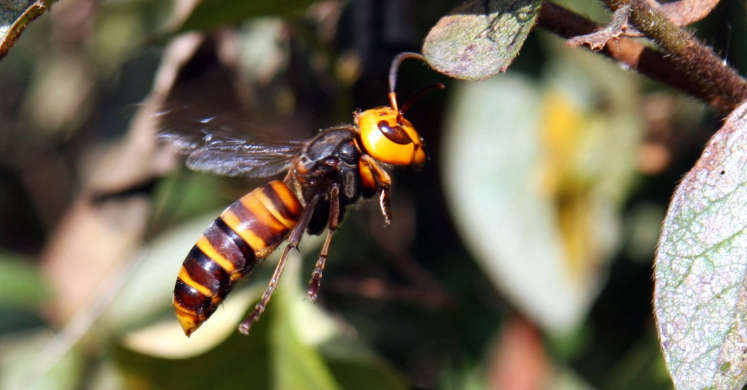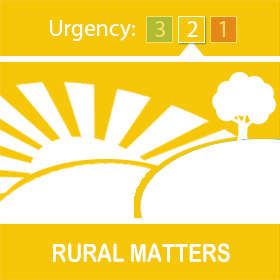
South West Water is encouraging people to be aware of Asian hornets, one of the biggest threats to our natural pollinators, as part of Asian Hornet Week.
The Asian hornet, an invasive non-native species first discovered in the UK in 2016, is being reported more with the total number of sightings so far this year thought to have exceeded the previous six years combined.
While Asian hornets are thought to pose no greater risk to humans than a bee, they feed on our native bees and a range of other pollinators, hawking around hives. The government’s strategy is to track each Asian hornet seen and locate and destroy every nest.
As a large landowner across the South West with a responsibility for conserving the natural environment, South West Water is working closely with a range of stakeholders to protect our native biodiversity.
And to combat the threat posed by Asian hornets, the region’s water company wants to work with a new community – beekeepers – to understand the risks and help raise awareness of the issues the insects cause with the wider public.
South West Water is hosting a meeting today (Wednesday 6 September) for people working in the countryside, invasive species interest groups, countryside rangers and others who are likely to come across a hornet nest, to look at how we can prevent the establishment of Asian hornets to protect our pollinators.
Rebecca Northey, South West Water’s Invasive and Biosecurity Officer, who is a beekeeper and member of Launceston Bee Group, said: “Asian hornets are a triple threat. They negatively impact our biodiversity – decimating our pollinators.
“They are economically devastating to commercial beekeepers and cause knock on effects to food production from a decline in pollination services, with the latest annual figures from France costing over 30 million euros.
“They also pose a serious risk to public health when protecting their nests, which are not just found high up in trees but in low bramble thickets where we could all come into contact with them.
“It is clear to me that people from all communities need to be on the lookout for this species and report all sightings. Make no mistake this Invasive Non-Native Species will impact us all.”
Alan Baxter, Asian Hornet Coordinator for the Hampshire Beekeepers Association, who will be speaking at the meeting, said: “We have to assume that the Asian hornet is here to stay. We know that it poses a serious threat, not only to our precious bees and the diversity of our insect population, but to humans who accidentally disturb their nests.
“We need realistic, workable national and local plans with sufficient resources to manage the invasion and reduce its impact. Everyone needs to know what is coming and how they can help.”
People can help play their part by reporting suspected sightings on the Asian Hornet Watch App, available for iPhone and Android devices, or by emailing alertnonnative@ceh.ac.uk

 Criminal investigation into suspended Chief Constable dropped
Criminal investigation into suspended Chief Constable dropped
 Devon families receive their primary school place offers
Devon families receive their primary school place offers
 Theft of Quad Bike / Livestock Trailer and / Farm Tools - Tiverton and Withleigh Area
Theft of Quad Bike / Livestock Trailer and / Farm Tools - Tiverton and Withleigh Area
 Stay vigilant for ticket fraud ahead of top events and concerts this summer.
Stay vigilant for ticket fraud ahead of top events and concerts this summer.











